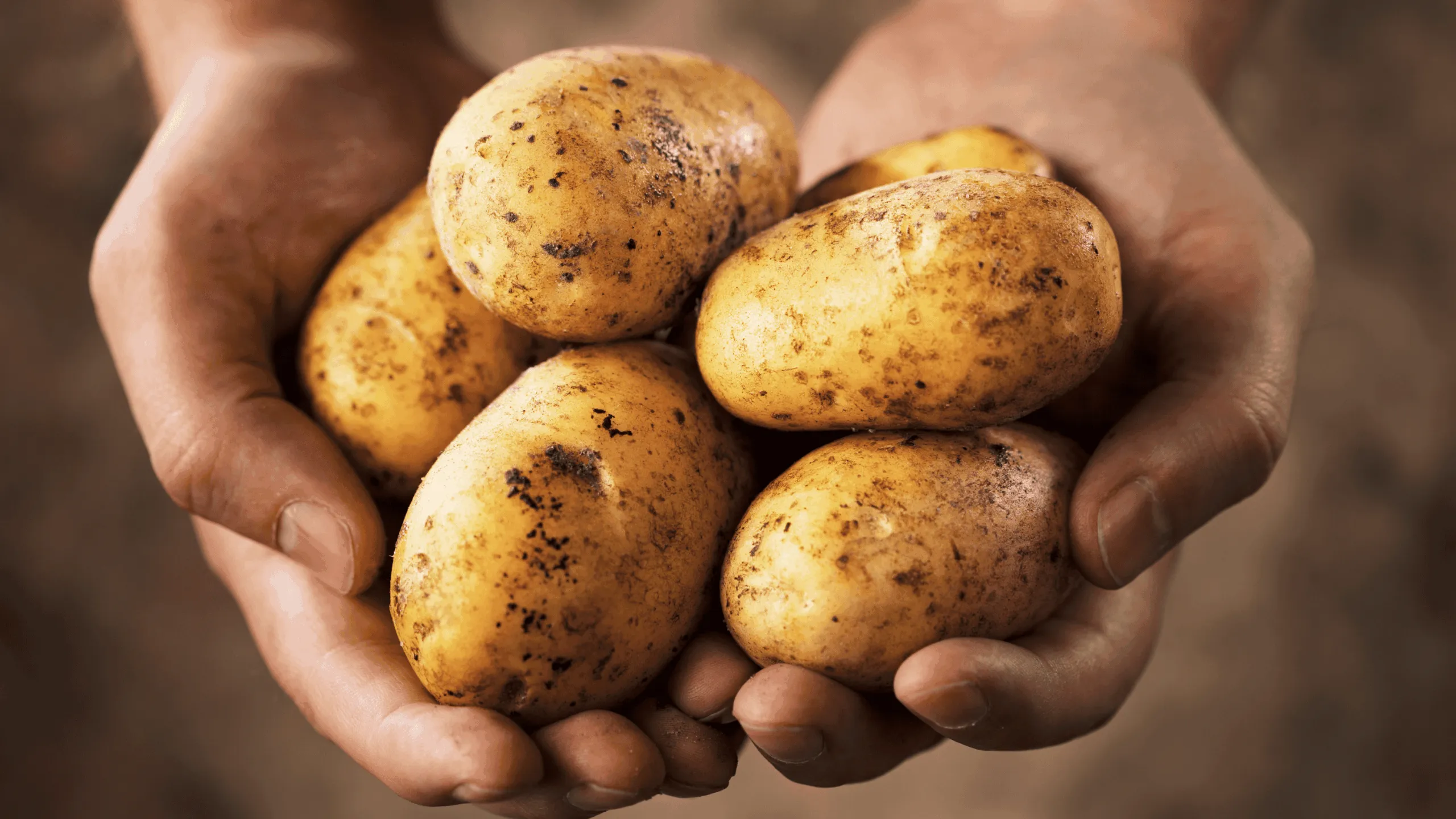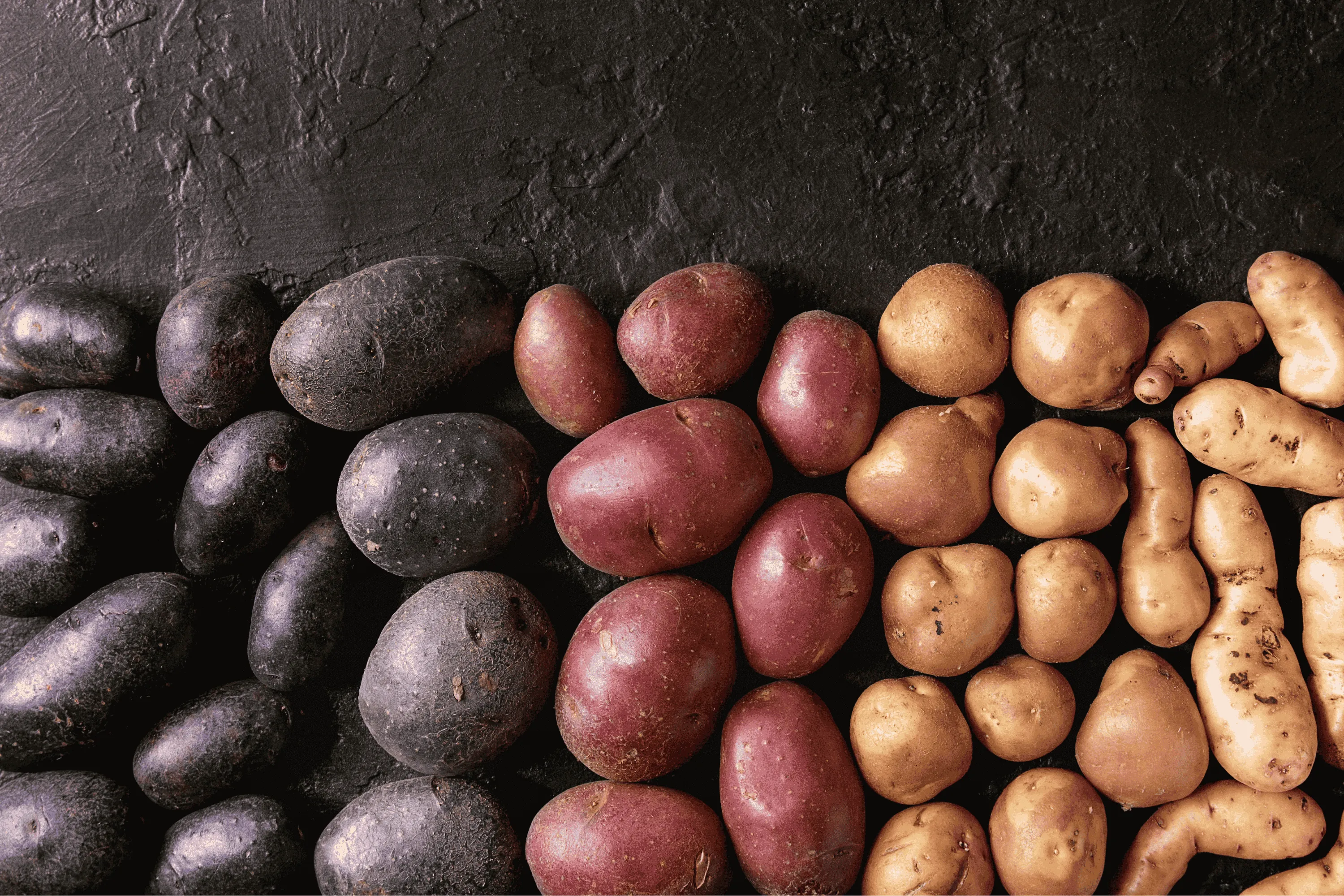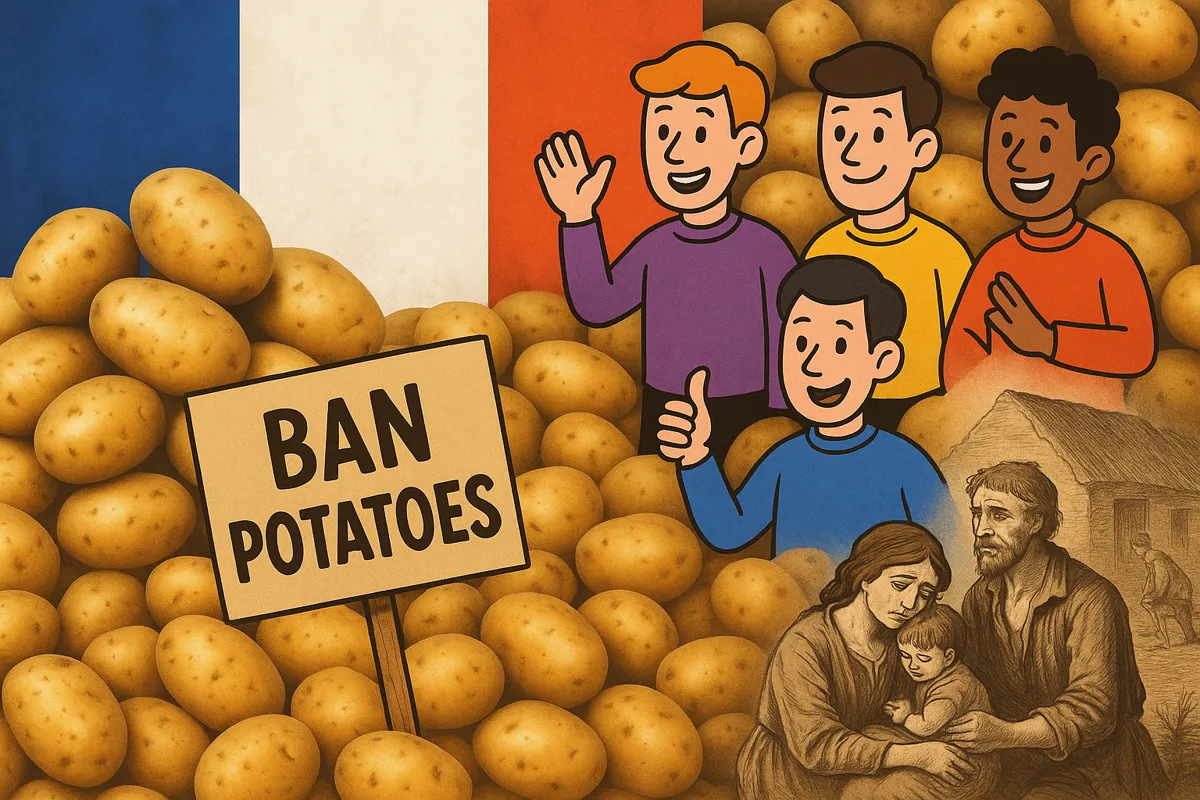In the wake of World Potato Day, we celebrate the humble potato—one of the world’s most versatile and widely consumed foods. Yet, its journey to global acceptance hasn’t always been so straightforward. Once regarded with suspicion and even fear, the potato has turned its controversial past into a rich and storied history.
Hot potato myths: From leprosy fears to culinary staple
The potato’s early days in Europe were clouded by myths and misconceptions. In the 18th century, some believed that potatoes were responsible for leprosy. This idea was likely fuelled by the tuber’s underground growth and unfamiliar appearance. It is often stated that in 1748, the French government banned potato cultivation due to these fears. However, the specifics of the ban are disputed. While some historians argue that it was indeed driven by health concerns, others suggest that it was more likely rooted in the broader resistance to new crops, with potatoes symbolising a challenge to traditional agricultural practices.
Despite this, the belief that potatoes were harmful to health persisted for some time. However, a closer look at the social dynamics of the period suggests that fears surrounding potatoes were less about science and more about superstition and the unfamiliarity of the crop. These misconceptions were never proven to have a basis in science.

‘Hot Potato’ idiom: From controversial origins to pop culture
Today, the potato’s historical reputation is mostly forgotten. However, its legacy endures through the common idiom ‘hot potato.’ The phrase, now widely used in political and social discourse, describes issues or situations that are highly controversial and difficult to handle. The term likely stems from the discomfort of holding a potato fresh from the fire—something you’d quickly pass off to someone else to avoid the heat. Over time, it evolved into a metaphor for any issue that people are reluctant to confront directly.
While this origin story is widely accepted, some linguists debate the exact beginnings of the idiom. There’s a possibility that ‘hot potato’ wasn’t just inspired by the literal discomfort of holding a potato, but also by various phrases and metaphors across languages, making its emergence a bit more complex than we typically think. The use of ‘hot potato’ to describe a tricky or contentious issue may not have come into widespread usage as quickly as we’ve been led to believe.
The Wiggles’ ‘Hot Potato’: A cultural twist
The potato’s cultural relevance didn’t stop with idioms or historical events. In modern times, *The Wiggles*—Australia’s beloved children’s music group—made their own contribution to the potato’s legacy. Their song *’Hot Potato’* became a hit among kids, turning the once-controversial vegetable into a catchy, fun, and playful tune. Released as part of their *’Yummy Yummy’* album, the song plays on the ‘hot potato’ idiom, making the concept of a ‘hot potato’ both fun and approachable for children.
The song’s infectious beat and repetitive lyrics made it an instant favourite at birthday parties and playgroups, introducing an entirely new generation to the ‘hot potato’ concept. Interestingly, while the potato may have been an object of suspicion centuries ago, it’s now firmly planted in popular culture, thanks in part to The Wiggles’ lighthearted take on the subject. ‘Hot Potato’ serves as a reminder that even a once-feared food can find a way to playfully worm its way into modern life.
To experience the fun firsthand, check out the official music video below:
Antoine-Augustin Parmentier and the potato’s rise
Parmentier is often credited with popularising the potato in France, but it’s worth noting that his promotion of the tuber wasn’t a solo effort. Other factors contributed to the potato’s eventual acceptance, including changes in agricultural practices and the influence of other figures. Parmentier, a French pharmacist and former prisoner of war, is often heralded as the driving force behind the potato’s rise, but some historians argue that his work may have been more about bringing together a wider social movement around food security and not just about an individual effort.
Parmentier’s public demonstrations and royal endorsements certainly helped, but the potato’s growing role as a food source was influenced by multiple social, economic, and environmental factors. He wasn’t alone in his efforts to push for the widespread cultivation of the potato; it was also a product of political changes, the spread of new agricultural methods, and a general shift in attitudes towards more sustainable food sources.
The potato’s global impact
Despite early resistance, the potato eventually became a global staple, playing a pivotal role in the diets and economies of many nations. The potato’s introduction to Europe in the 16th century, following its discovery in the Americas, was initially met with scepticism. For many, it was an unfamiliar and unappealing food. Yet, the potato’s resilience in various climates and its ability to grow in poor soils made it a crucial crop in the face of famine.
By the 19th century, the potato had cemented its place as a fundamental food source in Europe and North America. The Irish Famine, which lasted from 1845 to 1852, underscored the critical importance of the potato, as it was a staple food for millions. Yet, the potato’s role in human history is far from simple. It is a symbol of both nourishment and struggle, with its transformative impact on global agriculture and cuisine.
In the modern era, the potato is celebrated for its versatility. It appears in countless dishes across cultures—from mashed potatoes and French fries to baked potatoes and potato salad. In commemoration of World Potato Day, we recognise not only the potato’s culinary significance but also its ability to overcome early prejudices, including its association with leprosy and other health fears.

For more stories like this, you can browse our full collection here!


